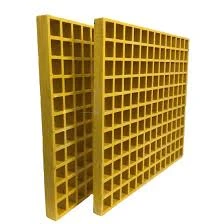
-
 Afrikaans
Afrikaans -
 Albanian
Albanian -
 Amharic
Amharic -
 Arabic
Arabic -
 Armenian
Armenian -
 Azerbaijani
Azerbaijani -
 Basque
Basque -
 Belarusian
Belarusian -
 Bengali
Bengali -
 Bosnian
Bosnian -
 Bulgarian
Bulgarian -
 Catalan
Catalan -
 Cebuano
Cebuano -
 China
China -
 China (Taiwan)
China (Taiwan) -
 Corsican
Corsican -
 Croatian
Croatian -
 Czech
Czech -
 Danish
Danish -
 Dutch
Dutch -
 English
English -
 Esperanto
Esperanto -
 Estonian
Estonian -
 Finnish
Finnish -
 French
French -
 Frisian
Frisian -
 Galician
Galician -
 Georgian
Georgian -
 German
German -
 Greek
Greek -
 Gujarati
Gujarati -
 Haitian Creole
Haitian Creole -
 hausa
hausa -
 hawaiian
hawaiian -
 Hebrew
Hebrew -
 Hindi
Hindi -
 Miao
Miao -
 Hungarian
Hungarian -
 Icelandic
Icelandic -
 igbo
igbo -
 Indonesian
Indonesian -
 irish
irish -
 Italian
Italian -
 Japanese
Japanese -
 Javanese
Javanese -
 Kannada
Kannada -
 kazakh
kazakh -
 Khmer
Khmer -
 Rwandese
Rwandese -
 Korean
Korean -
 Kurdish
Kurdish -
 Kyrgyz
Kyrgyz -
 Lao
Lao -
 Latin
Latin -
 Latvian
Latvian -
 Lithuanian
Lithuanian -
 Luxembourgish
Luxembourgish -
 Macedonian
Macedonian -
 Malgashi
Malgashi -
 Malay
Malay -
 Malayalam
Malayalam -
 Maltese
Maltese -
 Maori
Maori -
 Marathi
Marathi -
 Mongolian
Mongolian -
 Myanmar
Myanmar -
 Nepali
Nepali -
 Norwegian
Norwegian -
 Norwegian
Norwegian -
 Occitan
Occitan -
 Pashto
Pashto -
 Persian
Persian -
 Polish
Polish -
 Portuguese
Portuguese -
 Punjabi
Punjabi -
 Romanian
Romanian -
 Russian
Russian -
 Samoan
Samoan -
 Scottish Gaelic
Scottish Gaelic -
 Serbian
Serbian -
 Sesotho
Sesotho -
 Shona
Shona -
 Sindhi
Sindhi -
 Sinhala
Sinhala -
 Slovak
Slovak -
 Slovenian
Slovenian -
 Somali
Somali -
 Spanish
Spanish -
 Sundanese
Sundanese -
 Swahili
Swahili -
 Swedish
Swedish -
 Tagalog
Tagalog -
 Tajik
Tajik -
 Tamil
Tamil -
 Tatar
Tatar -
 Telugu
Telugu -
 Thai
Thai -
 Turkish
Turkish -
 Turkmen
Turkmen -
 Ukrainian
Ukrainian -
 Urdu
Urdu -
 Uighur
Uighur -
 Uzbek
Uzbek -
 Vietnamese
Vietnamese -
 Welsh
Welsh -
 Bantu
Bantu -
 Yiddish
Yiddish -
 Yoruba
Yoruba -
 Zulu
Zulu
Advanced Fiberglass Winding Machines for Enhanced Composite Manufacturing Efficiency and Quality Control
Understanding Fiberglass Winding Machines The Future of Composite Manufacturing
Fiberglass winding machines have become an essential technology in the production of composite materials, particularly in industries requiring lightweight yet high-strength components. As industries evolve towards more sustainable and efficient manufacturing processes, fiberglass winding machines stand out due to their precision, versatility, and cost-effectiveness.
What is a Fiberglass Winding Machine?
A fiberglass winding machine is a specialized piece of equipment designed to automate the process of winding fiberglass reinforcement around a core or mandrel. This technique is part of a broader category known as fiber-reinforced composite fabrication, where fibers like fiberglass are combined with a polymer matrix to create a material that is both strong and lightweight. The winding process involves layers of fiberglass being coated with a resin and then precisely positioned on a rotating mandrel, allowing for the creation of complex shapes and structures.
Applications of Fiberglass Winding Machines
These machines are utilized across various industries, including aerospace, automotive, construction, and marine engineering. In the aerospace sector, for instance, they are crucial for the production of lightweight structures that contribute to fuel efficiency. Similarly, the automotive industry benefits from fiberglass components as they help reduce the overall weight of vehicles, leading to better fuel economy and lower emissions.
In construction, fiberglass winding machines are employed to create strong, durable tubes and pipes that resist corrosion, making them ideal for use in harsh environments
. The marine industry also takes advantage of fiberglass's buoyancy and strength to manufacture boats and other watercraft that are both light and resilient.Advantages of Using Fiberglass Winding Machines
fiberglass winding machine

One of the primary advantages of fiberglass winding machines is the consistent quality they offer. Unlike manual winding processes, which can lead to variability in fiber placement and resin saturation, automated machines provide precision that ensures uniformity across each component. This consistency is critical—variances can lead to weaknesses in the final product, which is particularly dangerous in high-stress applications like aerospace.
Moreover, the use of fiberglass winding machines enhances productivity. These machines can operate continuously, significantly reducing the time it takes to produce components compared to traditional methods. This increased efficiency not only accelerates production timelines but also allows manufacturers to meet growing market demands without compromising quality.
Innovations and Future Prospects
As technology advances, so too do fiberglass winding machines. Recent innovations have introduced features like computer numerical control (CNC) capabilities, which allow for greater customization and complexity in designs. Additionally, advancements in materials science have led to the development of improved resin systems that cure faster while enhancing overall mechanical properties.
Looking ahead, the demand for more sustainable manufacturing practices will likely drive further advancements in this field. Manufacturers are increasingly focused on eco-friendly materials and processes, including the integration of recycled materials into the production of fiberglass composites.
Conclusion
In conclusion, fiberglass winding machines are a cornerstone of modern composite manufacturing, offering numerous advantages from quality control to efficiency. Their application across various industries underscores their versatility and importance in producing high-performance materials. As technology continues to progress, we can expect even greater innovations in fiberglass winding processes, further cementing their role in the future of manufacturing. The ongoing development in this field will not only enhance product performance but also contribute towards more sustainable manufacturing practices—a necessity in the current global landscape.
Latest news
-
High-Quality Fiberglass Car Bodies Durable GRP Car & Boat Body SolutionsNewsJul.08,2025
-
High-Quality Fiberglass Dual Lamination Product Manufacturer Durable FRP & GRP Dual Lamination SolutionsNewsJul.08,2025
-
Rectangular Tank with Dimensions for GRP Calculation Custom Fiberglass GRP Rectangular TanksNewsJul.07,2025
-
High-Quality Fiberglass Weir Custom FRP Weir & Fiberglass Tanks ManufacturerNewsJul.07,2025
-
CPVC FRP Pipe A Reliable Choice for Industrial Applications High Strength & Corrosion ResistanceNewsJul.07,2025
-
Fiberglass Scrubber for Effective Cleaning and Stain Removal – Superior Performance in Various ApplicationsNewsJul.06,2025









